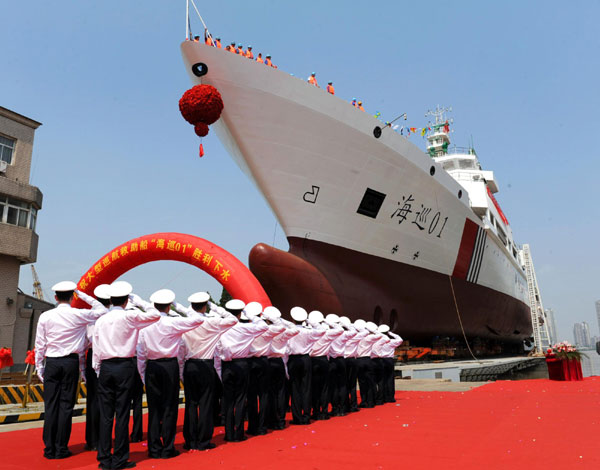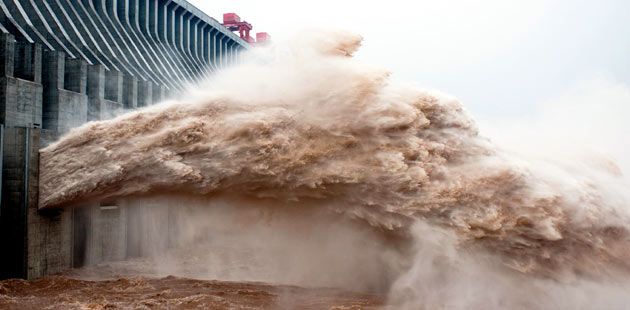China launches its largest patrol vessel
Updated: 2012-07-28 20:57
(Xinhua)
|
||||||||
 |
|
Maritime administration officials salute at the launching ceremony of patrol vessel Haixun01, Wuhan of Hubei province, July 28, 2012. [Photo/Xinhua] |
WUHAN - China launched its largest and most advanced patrol vessel Haixun01 on Saturday in Wuhan, a city in Central China's Hubei province, in a move to maintain its marine sovereignty and enhance its rescue efficiency.
Haixun01 is the first Chinese patrol vessel to simultaneously incorporate marine inspection and rescue functions. It will carry out missions regarding maritime inspection, safety monitoring, rescue, oil spill detection and handling, said Xu Guoyi, head of the Shanghai Maritime Bureau, which will manage the ship.
It is expected to be put into service by the end of this year, Xu said.
The 5,418-tonnage Haixun01 is 128.6 meters in length. Its sailing speed is 37 km per hour and has a maximum sailing distance of 10,000 nautical miles (18,520 km) without refueling, said Tang Gongjie, general manager of Wuchang Shipbuilding Industry Company Ltd, the builder of the ship.
The ship can accommodate 200 people rescued at sea and will be equipped with devices to offer basic medical treatment and surgeries. The vessel also has a helipad so airborne search and rescue missions can be carried out from it.
In addition to rescue missions, the vessel is able to tow ships as well as put out fires on other boats.
The operation of Haixun01 will improve the standard of China's maritime administration equipment and is conducive to maintaining China's maritime safety, protecting the maritime environment and safeguarding the nation's sovereignty, said Huang He, deputy head of the maritime bureau of the Transport Ministry.
China currently has two 3,000-tonnage patrol vessels, Haixun 11 and Haixun 31, and a 1,500-tonnage patrol vessel, Haixun 21, to handle maritime inspection, salvage and maritime traffic management in the country's coastal waters.







